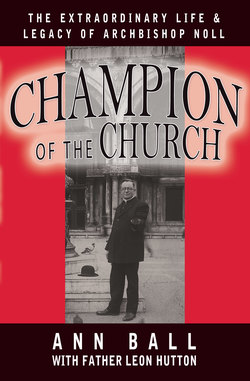Читать книгу Champion of the Church - Ann Ball - Страница 9
На сайте Литреса книга снята с продажи.
ОглавлениеIntroduction
When Americans gather to celebrate national holidays like Thanksgiving and the Fourth of July, we often think about pilgrims landing at Plymouth Rock, English colonists at Jamestown, and the founding fathers gathered in convention in Philadelphia. The early colonists came for many reasons but mostly in search of new lands, prosperity, and religious freedom. The Mayflower Compact in Massachusetts, Roger William’s Baptist colony in Providence, Rhode Island, and the Anglicanism of Virginia reflected the impact that Protestant Christianity has made upon the American scene. The results of the “Great Awakenings” helped shape the religious and political character of the nation. The Protestant denominations, which dominated the American landscape, interpreted America’s Manifest Destiny to be a result of God’s providential plan. America’s providential destiny continues to be a powerful force that drives the imagination and affirms the conviction that this is the land of opportunity, freedom, and democracy.
Portrait of Archbishop Noll by Elizabeth Kormendi, hanging at Our Sunday Visitor
From the beginning, American Catholics were considered outsiders in the midst of a predominately Protestant culture. Catholics were suspect because of their perceived loyalty to a foreign power, the Papacy, which had implications not only in religious expression but also in politics. Suspicion of Catholic intentions resulted in periodic displays of anti-Catholicism. Many questioned whether Catholics could be loyal to the democratic experiment on which the country had been founded. However, Catholics also had arrived seeking religious freedom and the political and economic advantages that the New World offered. They believed that they shared in America’s providential destiny. In contrast with their Protestant neighbors, Catholics could boast of their contributions to America’s beginnings and growth. They had explored the continent, founded missions, and established settlements. Catholics labored in the task of nation building as farmers, laborers, and soldiers. Therefore, what had once been considered a predominately Protestant nation was soon challenged by the presence of a sizeable Catholic population who began to place their imprint on the landscape of contemporary American life.
John Francis Noll played an instrumental role in the development of American Catholic life and identity. He was born and raised in the heartland of America, a Hoosier from the city of Fort Wayne, of German and Irish heritage. He lived during the first half of the twentieth century, when America was developing its industrial might and flexing its muscle as a world power. This was a time of unprecedented growth and change for the nation and the Church. He witnessed the impact of the world at war, the Depression, and the advent of the atomic age. As immigrants poured into the country by the tens of thousands, many were Catholics who came from Ireland, Germany, Italy, Eastern Europe, and Mexico. Their cultural diversity presented a unique challenge in the Church’s effort to educate and assimilate them into American Catholic life.
As a Catholic priest, and later as Bishop of Fort Wayne, John Noll was the editor of the national Catholic weekly, Our Sunday Visitor. He believed that the Catholic Church must claim its providential role in the shaping of America. Through his paper and his numerous books and pamphlets, he spoke to a nation of Catholics to educate them in their faith and promote the spirit of Catholic Action. He organized his readers — “the Friends of Our Sunday Visitor,” as he called them — to be the catalyst for the work of the Church. He shared with them the belief that by being good Catholics, they were also being good, loyal Americans. For a largely immigrant population, this became an important part of their assimilation into American life. As an accomplished apologist, Noll also presented the teachings of the Catholic faith to Protestants and demonstrated to them that Catholicism was not incompatible with American ideals.
John Noll was a missionary at heart, whose influence extended through the printed word and his work as a bishop in the Catholic hierarchy. Through his leadership and strength of character, he aspired to educate against religious bigotry, racism, and prejudice. He fought anti-Catholicism in all its forms. He promoted the values of a nation based on the principle of “One Nation Under God.” In a time of mounting secularism and materialism, he encouraged the principles of marriage and family life and urged that education and politics be rooted in religious truths. He supported the rights of labor and capital and the care of immigrants. He raised awareness against the enemies of society by working for public decency in movies and magazines and showed a deep concern for America’s youth. He strongly opposed the spread of atheistic Communism and totalitarian governments that used war and social unrest to threaten the progress of Church and society.
This is the story of a man who committed his life to the Christian principles that made him a faithful Catholic and a loyal American. He was industrious and dedicated to the American spirit of tolerance and civility. Like many of his contemporary bishops, who were builders with “brick and mortar,” Archbishop Noll also used his numerous skills to organize and advance the apostolate of the laity to be a catalyst for the good of the Church and society. As the “Harmonizer,” a title associated with his paper, he promoted an America rooted in the firm conviction “In God We Trust.” As an American and Catholic, then, John Francis Noll was right on the money.
— Fr. Leon Hutton
